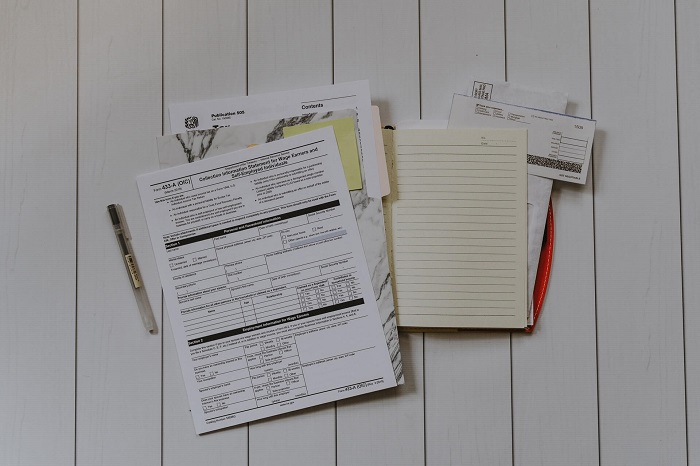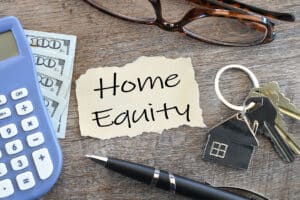Homebuying is a massive financial enterprise. Generally, one of the first steps in the home loan process finds the lender presenting the borrower with a 4506 t form—a form that, when signed allows for the lender to request the borrower’s tax summary from the last couple of years.
A common belief is that there’s no way to procure a loan if you are missing a large piece of documentation like a tax return. But is this true? Can you get a home loan without tax returns? And if so, how do you go about getting a home loan if you don’t have a tax return?
Key takeaways
- Home loans without tax returns are possible for self-employed individuals or business owners.
- Options include bank statement loans, P&L mortgages, and no-doc loans.
- Salaried or hourly employees may not need to provide tax returns, and W-2 forms can be used as proof of earnings.
- Other factors like irregular income or high net worth without a job can also be considered, with good credit and manageable debt as requirements.
Getting house loans without tax returns
There are actually several situations that merit a home loan under these circumstances, though keep in mind that not all lenders will offer loans without tax returns. Read on for information on how you can get a home loan without tax returns and why one might need to try.
Self-employed/business owners
A self-employed business owner often takes advantage of a number of available tax write-offs. This is well and good. However, it can also make the DTI look far too high when trying to acquire a traditional mortgage.
Enter the bank statement loan. This type of loan allows for mortgage approval to be calculated using bank deposits while excluding tax returns. To qualify, you will need a credit score of at least 600 and documents that verify the business’s existence. These documents could include a business license, a letter from an accountant, an official business listing, or even a business website. In addition, you will need at least one of the following (keep in mind that some lenders may require both):
Personal bank statements
When using personal bank statements, you must have been in business for more than two years, but you do not have to be the sole owner. Lenders will calculate income based on 12 months of deposits, less any business expenses. They will also require three months of personal bank statements showing that revenue is coming from a business account
Business bank statements
When using business bank statements, you must own 100% of the business and have been in business for more than two years. Lenders will calculate income using 12 months of deposits, less a 50% expense factor, or whatever a CPA might deem acceptable.
Profit & Loss Only mortgage
A Profit and Loss Only (or P&L) mortgage is available for well-qualified borrowers. A lender will conduct income approval based on a Profit and Loss statement presented by a CPA. Along with this information, the CPA must provide a letter with the borrower’s business name, how tax returns are filed, the percentage of ownership in the business, and how long the CPA has been filing returns for the company.
Salaried or hourly earnings
For a salaried or hourly employee, tax returns are not required for mortgage approval in most cases. Wage-earners will typically only be required to provide a W-2 form and most recent 30-day stubs as proof of earnings. However, some circumstances require different loans. Let’s take a look at some of these scenarios.
You have irregular income
With irregular income, mortgage underwriters have a lot of discretion and a lender will examine other assets and credit history to determine eligibility. If you have an irregular income and plan to purchase a home in the near future, keep careful records of all assets and income streams.
You’re a real estate investor
A real estate investor can have an extremely low adjusted gross income on paper due to the write-offs they use. A cash flow loan is an optimal choice for these professionals, as it considers the cash flow of the property and not personal income.
You had business expense write-offs the previous year
For those with a lot of expense write-offs, a bank statement loan is a good option (if you own the company), but you may also choose to apply for a P&L Only loan or a no-doc loan (see explanation below).
You have a high net worth but no job
Lenders will decide eligibility for a loan based on assets. Those who do not have an income from a job but have a high net worth may qualify for what is known as a no income verification mortgage or a “no-doc loan.” These loans come with extra consumer protections in recent years, making them a workable alternative for the traditional home loan.
You file multiple tax returns
A no-doc loan is also a good option for those who file multiple tax returns. This can complicate the process of checking past returns, and a no-doc loan would allow for avoiding this part of the process. Like the previous case, other factors must be in good order to qualify.
What are the requirements to get a home loan without tax returns?
Aside from employment history, there are some other standard requirements for getting a home loan without tax returns. Here is a list of the basics, but be sure to ask your lender about any additional paperwork or information that might be required.
Credit score
While lenders may vary on their credit score requirements, the down payment required and interest rates may increase if the credit score is in the lower range of acceptable.
Credit history
Your credit history determines your credit score. Pay all bills on time: rent, utilities, credit card payments, and any loans. If possible, pay off credit cards and refrain from acquiring any new debt within a few months of trying to obtain a home loan.
Current debts
Regardless of how you plan to acquire a home loan, a lender will always look at your DTI (debt-to-income ratio). The smaller your debt, the better your chances of a home loan in the amount you’re looking for.
Liquid assets and savings
Your assets and savings will be balanced against your debt for DTI. If you have a cache of savings in addition to your income, you are a better loan risk for lenders, so be sure to list everything.
When it comes to qualifying for a home loan, some situations call for a break from the usual routine. As with any loan process, it’s a numbers game, and otherwise, well-qualified borrowers can forgo the need for a 4406t form. Be sure that you have all other information available, whether working on your own or with a CPA. Also, shop around to make sure that you’re getting the best loan for your situation.
Contact us today!
If you’re ready to start your home loan process, reach out to the experts at Hero Home Programs™ today by requesting a consultation today. They work with local vendors to get you the best rate on a home loan and help save thousands of dollars on the home buying journey.














